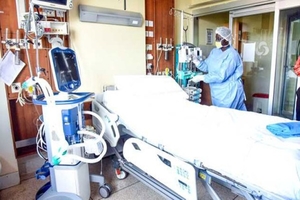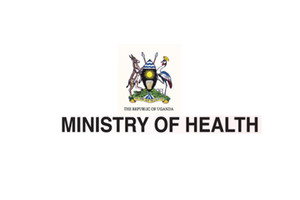Mombasa, Kenya, 1 November 2020 – The Government of the United States, through the U.S. The Agency for International Development (USAID) is donating 14 new , modern ventilators to Mombasa, Kenya, to help fight against COVID-19.
This is the new transfer of ventilators as part of the promised donation by the United States of 200 ventilators across Kenya. The 200 ventilators are all distributed directly to hospitals in need of life-saving equipment. Before receiving the ventilators, the United States provided medical professionals with instruction on how to properly use and store the ventilators. If completed, the donation will provide much-needed assistance to hospitals around the country to support Kenyans dealing with COVID-19.
The donation delivers on President Trump’s commitment to provide critically needed supplies to support Kenya’s response to the COVID-19 pandemic.
U.S. Ambassador to Kenya, Kyle McCarter, and visiting USAID Acting Administrator John Barsa announced the donation of a total of 200 ventilators at the Ministry of Health on October 5, 2020.
As for the donation, Ambassador McCarter said, “President Trump is delivering on his promise to President Kenyatta. This donation is part of the ongoing dedication of the United States to the health and protection of Kenyans and, in addition to the Ksh 7.6 billion already spent on the fight against COVID-19 in Kenya and Ksh 60 billion annually on the fight against HIV / AIDS , tuberculosis and malaria. Donations like these ventilators and drugs have saved the lives of millions of Kenyans.
The ventilators, produced in the United States, have leading-edge technology. They are compact, deployable, and provide Kenya with flexibility in treating patients affected by the virus, as well as those who require breathing support for other conditions.
“USAID is delivering the ventilators directly to the facilities selected by the Kenyan government and ensuring that the serial numbers are recorded in the inventory books of the counties receiving them,” said USAID Mission Director Mark Meassick.
National and county authorities have signed a letter of enforcement banning the selling or export of ventilators. In addition , the United States provides accompanying supplies, service schedules, training and other technical assistance. As part of the Road to Self-Reliance, USAID will educate health care staff not only on how to use ventilators, but also on critical care patient management.
Through the All-of-America strategy, the United States is providing life-saving assistance by working with the Government of Kenya and other stakeholders to identify priority investment areas. Since an infectious disease threat can become a threat everywhere, the United States is calling on other donors to contribute to the global effort to fight COVID-19.


